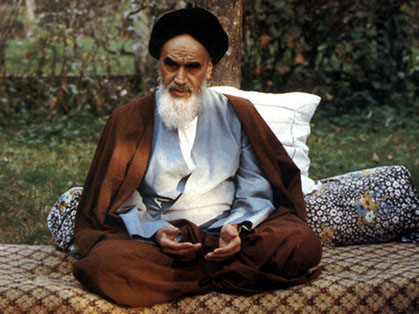".... In a speech on June 10, later published as a cover essay in The New Republic, McCain urged that we "unleash America's full moral power" to topple the Tehran regime. The speech highlights one of the crucial failings of McCain's world view, one in which rhetoric replaces analysis, and fantasy substitutes for foreign policy.By now, it's become something of a mantra among neoconservatives that we missed a chance to transform Iran a year ago. Reuel Marc Gerecht, writing in The New York Times, compares Iran's Green Movement to "what transpired behind the Iron Curtain in the 1980s" and accuses Obama of being passive in the face of this historical moment. Bret Stephens, a columnist for The Wall Street Journal, imagines that a more forceful Western response could have set off a revolution.The Iranian regime has many, many opponents, but it also has millions of supporters. Mahmoud Ahmadinejad may have actually lost the presidential election of 2009, but it was a close contest in which he got millions of votes. What little polling has been done in Iran, coupled with the observations of people who have been there, all suggest that the regime has considerable public support in rural areas, among the devout, and in poorer communities...... Ayatollah Ali Khamenei, remains the single most popular political figure in Iran.
...... The comparison of Iran's Green Revolution to the velvet revolutions of Eastern Europe is mistaken. In 1989 dissidents had three forces on their side: nationalism (because communism had been imposed by force by a foreign power), religion (because communism repressed the church), and democracy. The Green Movement has only one: democracy. The regime has always used the religiosity of the people to its advantage, but it has also become skilled at manipulating nationalism.
In May, the Milton Friedman Prize for Advancing Liberty was awarded to Akbar Ganji, one of the bravest advocates of nonviolent agitation and secular democracy for Iran. Ganji was jailed for six years in Evin Prison, mostly in solitary confinement, for his writings against the government. In his acceptance speech, Ganji explained that U.S. foreign policy does have an impact on Iran's freedom movement but not quite in the sense that neoconservatives mean.
"Even entertaining the possibility of a military strike, especially when predicated on the nuclear issue," Ganji said, "is beneficial to the fundamentalists who rule Iran. As such, the idea itself is detrimental to the democratic movement in my country." The regime bends international issues to its favor, and has become vocal about what Ganji calls the "gushing wound of Palestine … [which] worsens the infection of fundamentalism." He pointed out that Tehran continually reminds Iranians of America's "double standards" in opposing Iran's nuclear program while staying silent about Israel's arsenal of atomic weapons.
Ironically, those hoping to liberate Iranians are the very same people urging punitive sanctions and even military force against Iran. Do they think that when the bombs hit, they will spare those who wear green?
"'America is something that can be easily moved. Moved to the right direction.They won’t get in our way'" Benjamin Netanyahu
Saturday, June 19, 2010
"The regime in Iran isn't about to fall"
Zakaria in NEWSWEEK/ here
Subscribe to:
Post Comments (Atom)

No comments:
Post a Comment